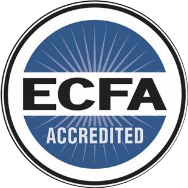
Philosophy Intro Part II: Classical Christian Education and the Seven Liberal Arts
What do we mean when we speak of “Classical Christian education?” In The Liberal Arts Tradition: A Philosophy of Christian Classical Education, authors Kevin Clark and Ravi Scott Jain summarize the aim of a Classical Christian education as follows:
“The Christian Classical educational tradition embodies just the kind of holistic and fully integrated curriculum that a thoroughly Christian understanding of human nature demands…[It] aims at cultivating fully integrated human beings.”[1]
A Classical Christian education is grounded in the traditional seven liberal arts studied by the ancient Greeks: grammar (reading and writing), dialectic (logical reasoning), rhetoric (persuasive writing and speaking), arithmetic, geometry, astronomy and music. For the ancients, the liberal arts “were not merely subjects to be mastered, but sure and certain ways of forming in the soul the intellectual virtue necessary for acquiring true wisdom.”[2] Robert M. Hutchins, editor of Britannica’s collection Great Books of the Western World, puts it this way:
“The aim of liberal education is human excellence, both private and public (for man is a political animal). Its object is the excellence of man as man and man as citizen.”[3]
A liberal arts education, says Hutchins, is an end in itself, undertaken “for no other purpose than it would help [men] to be men, to lead human lives, and better lives than they would otherwise be able to lead…it is the education of free men.”[4] Classical education is more than a method or collection of subjects—it is an intrinsic part of human dignity and is necessary for full human development.[5] Classical Christian education, then, strives to cultivate human excellence by nurturing and developing man’s God-given gifts: the spirit of inquiry and discovery, the ability to reason, and the desire to create beauty.
[1] Clark and Jain, p. 3
[2] Clark and Jain, p. 1
[3] “The Great Conversation,” introduction to the first edition of Great Books of the Western World, p. 49
[4] ibid.
[5] Hutchins, p. 50

 Copyright 2022 by Rafiki Foundation • Design by
Copyright 2022 by Rafiki Foundation • Design by